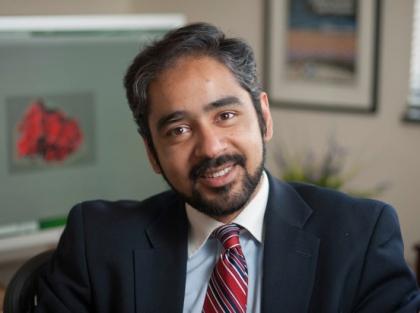
Muhammad H. Zaman, a member of the LUMS Syed Babar Ali School of Science and Engineering Board of Advisors and a Howard Hughes Medical Institute Professor, Department of Biomedical Engineering and International Health, Boston University has made a device, PharmaChk, which detects fake medicines.
His device, recently featured in the Wall Street Journal was named one of Scientific American’s “world-changing ideas” of 2013. It is a small, user friendly technology that relies on advances in the field of microfluidics to check if medicines are authentic.
Dr. Zaman’s device is low-cost, portable and works fast to measure a drug’s purity. His motive behind developing the device was to detect fake, second-rate and expired medicines, which are a deadly global problem that affects Pakistan too. His work was supported by the US Agency for International Development and in partnership with US Pharmacopeia, which sets medical standards used world-wide to find a way to detect such medicines before they harm patients.
As a scientist, Dr. Zaman said that he felt a sense of responsibility to solve issues with the tools he has as not all problems can be solved by economics and politics. He said that while some commonly used (but expensive and bulky) tests can distinguish genuine from fake drugs, and others can verify the authenticity of pharmaceutical labels, at some point, one needs to test what’s inside the pill, which Dr. Zaman’s device can do. It can also measure how quickly a drug’s active ingredient dissolves and is released, which suggests whether the drug will work as it should.
PharmaChk works by targeting molecules to specific drugs by binding to the drug; a fluorescent signal lets the user know what percentage of active ingredient it actually contains. This is critical as too low a dose of an active ingredient can lead to drug resistance and too high a dose can be deadly. The results of the test arrive in less than 15 minutes, the device requires little training and is simple to use, according to Dr. Zaman.
Dr. Zaman plans to make PharmaChk commercial in the coming years. Presently, he is testing and demonstrating its use in Ghana and Indonesia along with his colleagues, working closely with authorities in both countries. But technology alone can’t solve this life threatening problem and according to Dr. Zaman without policy makers’ buy-in on the issue, even the best possible technology won’t benefit the people.








